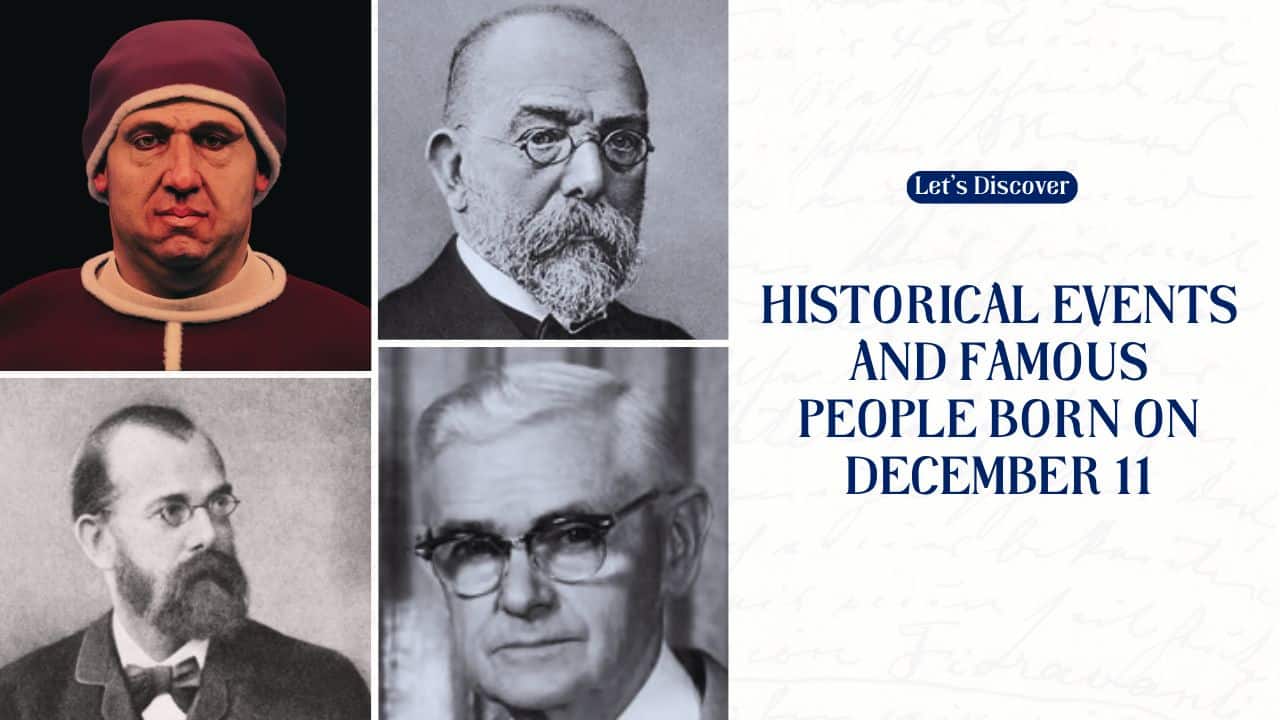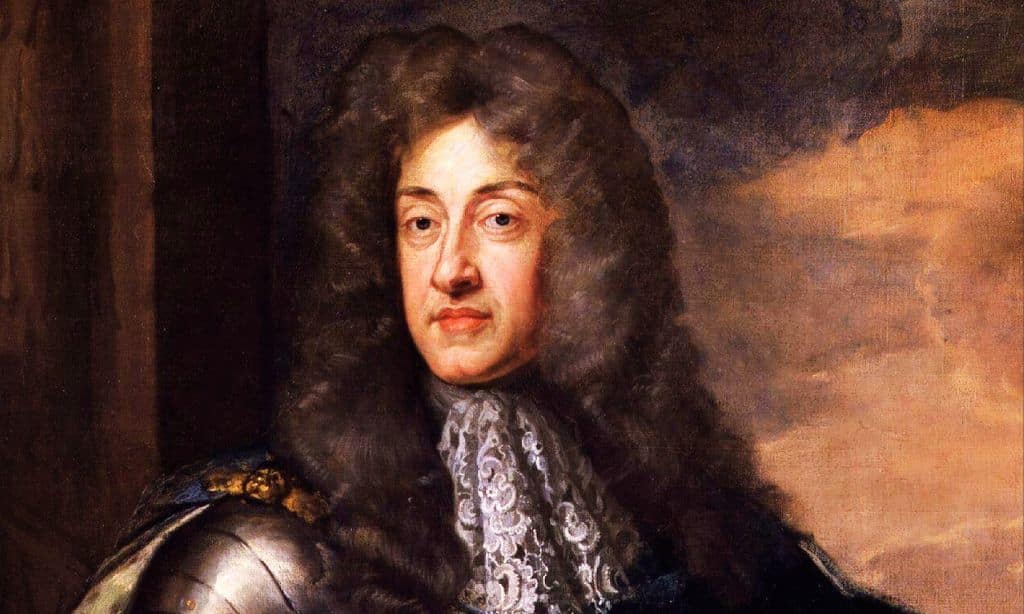December 11 is a day full of important historical events and remarkable individuals’ birthdays. From battles to musical achievements, this day has seen a variety of significant moments that shaped the world. Let’s take a closer look at some key events that happened on December 11, as well as some famous people born on this day.
Historical Events of December 11
Battle of Orewin Bridge (1282)
The Battle of Orewin Bridge, which took place in 1282 near Builth Wells, south Wales, is an important moment in Welsh history. It marked the death of Llywelyn ab Gruffydd, the last independent Prince of Wales. Llywelyn had ruled Wales since 1259, and his death effectively ended the struggle for Welsh independence.
Llywelyn had fought against English forces led by Edward I of England. Edward I, known as “Longshanks,” had already been working to bring Wales under English control. Llywelyn’s death at Orewin Bridge was a significant blow to Welsh resistance, and it made Edward’s goal of unifying Britain under English rule closer to reality. Llywelyn’s death also led to the annexation of Wales into the Kingdom of England in 1284.
This battle is a symbol of the long struggle for Welsh freedom and independence, making it a crucial event in both Welsh and English history.
James II Captured (1688)
King James II of England was captured on December 11, 1688, after trying to flee to France. James II was a Catholic king in a country that had been increasingly Protestant since the Reformation. His attempt to escape came after William of Orange landed in England with a large army to claim the throne. William’s invasion, known as the Glorious Revolution, aimed to remove James II from power.
James II’s capture marked the end of his reign and the beginning of William and his wife Mary’s rule. This event had long-lasting effects on English politics, leading to the establishment of constitutional monarchy and the weakening of the power of the monarchy in favor of Parliament. This event is one of the most important in British history, as it set the stage for the political changes that would shape modern Britain.
Anglo-Zulu War (1878)
The Anglo-Zulu War began on December 11, 1878, when British High Commissioner Henry Bartle Frere presented an ultimatum to the Zulu Kingdom. The Zulu king, Cetshwayo, was given a set of demands, including disbanding his army and accepting British rule over his kingdom. If the Zulu Kingdom did not comply, they would face war.
The Zulus, proud of their independence, refused to bow to British demands. The war that followed was fierce, with the British ultimately defeating the Zulus. The war is most famous for the Battle of Isandlwana, where the Zulus managed to defeat a British army. However, the British later won the war, and the Zulu Kingdom became a part of the British Empire.
This war was a significant moment in the history of British colonialism in Africa and showed the strength and resilience of the Zulu people.
Attempt on Hoover Thwarted (1928)
On December 11, 1928, an assassination attempt on Herbert Hoover, who was the president-elect of the United States, was foiled in Buenos Aires, Argentina. Anarchists had planned to bomb Hoover’s train as he was traveling through the city, but the police managed to prevent the attack before it could happen.
This event highlights the tense political climate of the 1920s, especially with the rise of anarchist movements in many parts of the world. Hoover would go on to become president in 1929, just a year after the foiled assassination attempt, and would face the Great Depression during his presidency. The thwarted assassination plot is a reminder of the political unrest and violence that was common during that era.
Blue Hawaii by Elvis Presley (1961)
On December 11, 1961, Elvis Presley’s album Blue Hawaii hit #1 on the charts and stayed there for an incredible 20 weeks. The album was tied to the movie of the same name, which starred Elvis in one of his most popular roles. The success of Blue Hawaii helped solidify Elvis Presley’s place as one of the most influential figures in American music.
The album blended Hawaiian music with Elvis’s classic rock and roll style, making it a unique and memorable release. Not only did it top the charts, but it also influenced popular culture for years to come. Blue Hawaii remains one of Elvis’s most successful albums and is still celebrated by fans today.
Famous Birthdays on December 11
Leo X (1475-1521)
Pope Leo X, born Giovanni di Lorenzo de’ Medici on December 11, 1475, in Florence, Italy, was one of the most famous popes in history. He became pope in 1513, at the age of 37, and his papacy lasted until his death in 1521. Leo X was a member of the powerful Medici family and is known for his patronage of the arts. Under his leadership, the Vatican became a center for Renaissance art, and he supported artists like Raphael and Michelangelo.
However, Leo X is also remembered for his controversial actions, particularly in relation to the Protestant Reformation. When Martin Luther posted his 95 Theses in 1517, challenging the Catholic Church’s practices, Leo X excommunicated Luther. This was a key moment in the split between the Catholic Church and Protestantism, which had a lasting impact on religious history.
| Name | Leo X |
|---|---|
| Born | December 11, 1475 |
| Died | December 1, 1521 |
| Role | Pope of the Catholic Church |
| Known For | Patronage of Renaissance arts, conflict with Martin Luther |
Hector Berlioz (1803-1869)
Hector Berlioz, born in La Côte-Saint-André, France, on December 11, 1803, was a famous French composer. He is best known for his dramatic and powerful orchestral compositions, especially Symphonie Fantastique, a groundbreaking piece in classical music.
Berlioz’s work was highly innovative, using large orchestras and new techniques to create exciting, emotional music. Although he faced criticism during his lifetime, today he is considered one of the most influential composers of the Romantic period. His compositions are still widely performed and admired.
| Name | Hector Berlioz |
|---|---|
| Born | December 11, 1803 |
| Died | March 8, 1869 |
| Role | Composer |
| Known For | Symphonie Fantastique, innovations in orchestration |
Robert Koch (1843-1910)
Robert Koch, born on December 11, 1843, in Clausthal, Hanover (now Germany), was a pioneering bacteriologist. He is most famous for his discovery of the bacteria that cause tuberculosis and cholera. Koch’s work helped establish bacteriology as a key branch of medical science.
In 1905, Koch was awarded the Nobel Prize in Physiology or Medicine for his work on tuberculosis. His discoveries saved countless lives by helping doctors understand and treat infectious diseases. Today, Koch is remembered as one of the founders of modern microbiology.
| Name | Robert Koch |
|---|---|
| Born | December 11, 1843 |
| Died | May 27, 1910 |
| Role | Bacteriologist |
| Known For | Discovering TB and cholera bacteria, Nobel Prize winner |
Walter Knott (1889-1981)
Walter Knott, born on December 11, 1889, in San Bernardino, California, is best known for creating Knott’s Berry Farm, a popular amusement park. Knott started his business by growing berries and creating jams, but he soon expanded into creating a theme park that became one of the first major attractions in California.
Knott’s Berry Farm became an American icon, and his invention of the boysenberry— a hybrid berry—became a part of American food culture. Knott’s contributions to both agriculture and entertainment have left a lasting legacy.
| Name | Walter Knott |
|---|---|
| Born | December 11, 1889 |
| Died | December 3, 1981 |
| Role | Businessman, Park Creator |
| Known For | Knott’s Berry Farm, boysenberry |
Takeaway
References
- “The Last Prince: The Life of Llywelyn ap Gruffydd” by J. Beverly Smith
- “The Glorious Revolution” by John Miller
- “The Anglo-Zulu War” by Adrian Greaves
- “Robert Koch: Father of Bacteriology” by Thomas D. Brock
- “Rita Moreno: A Memoir” by Rita Moreno
- “Berlioz: The Making of an Artist” by David Cairns
- “The History of Knott’s Berry Farm” by Jay Jennings





































